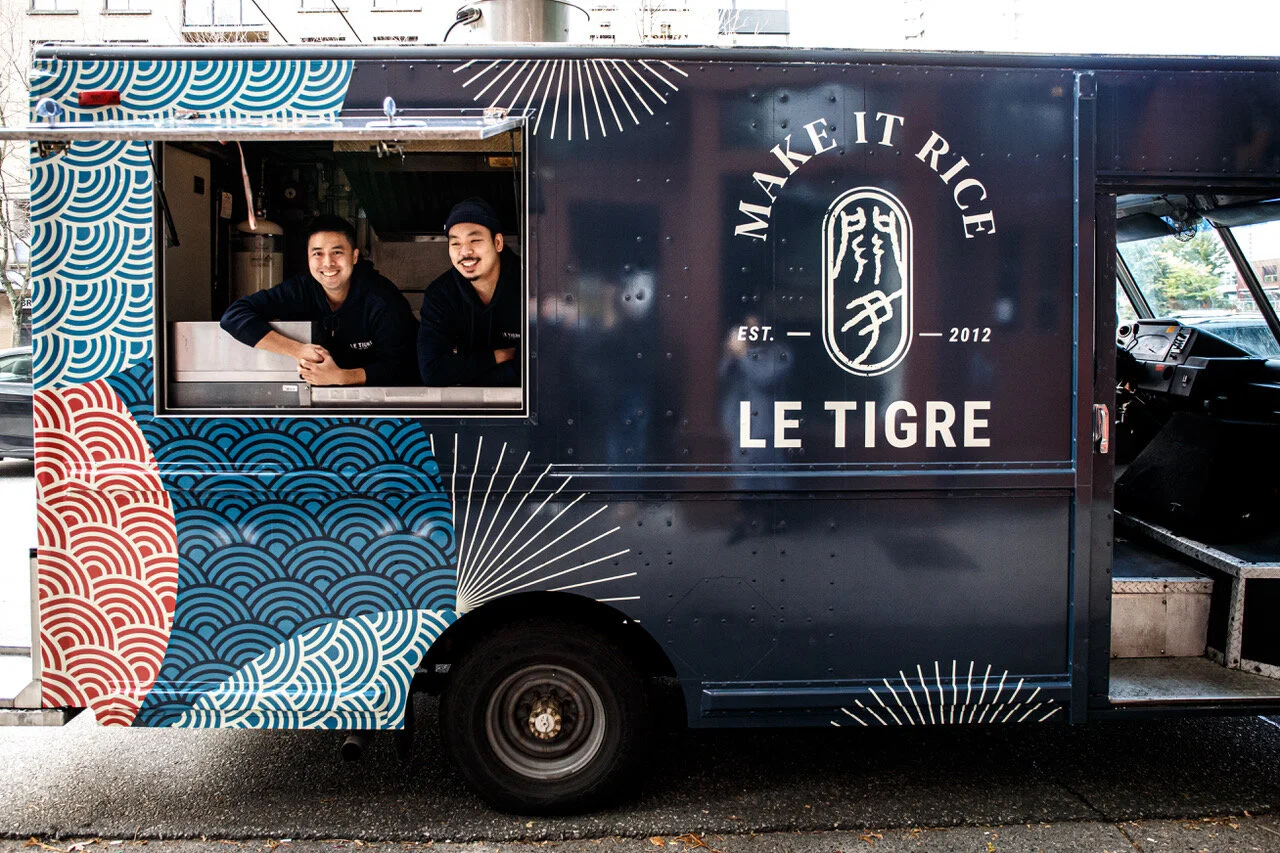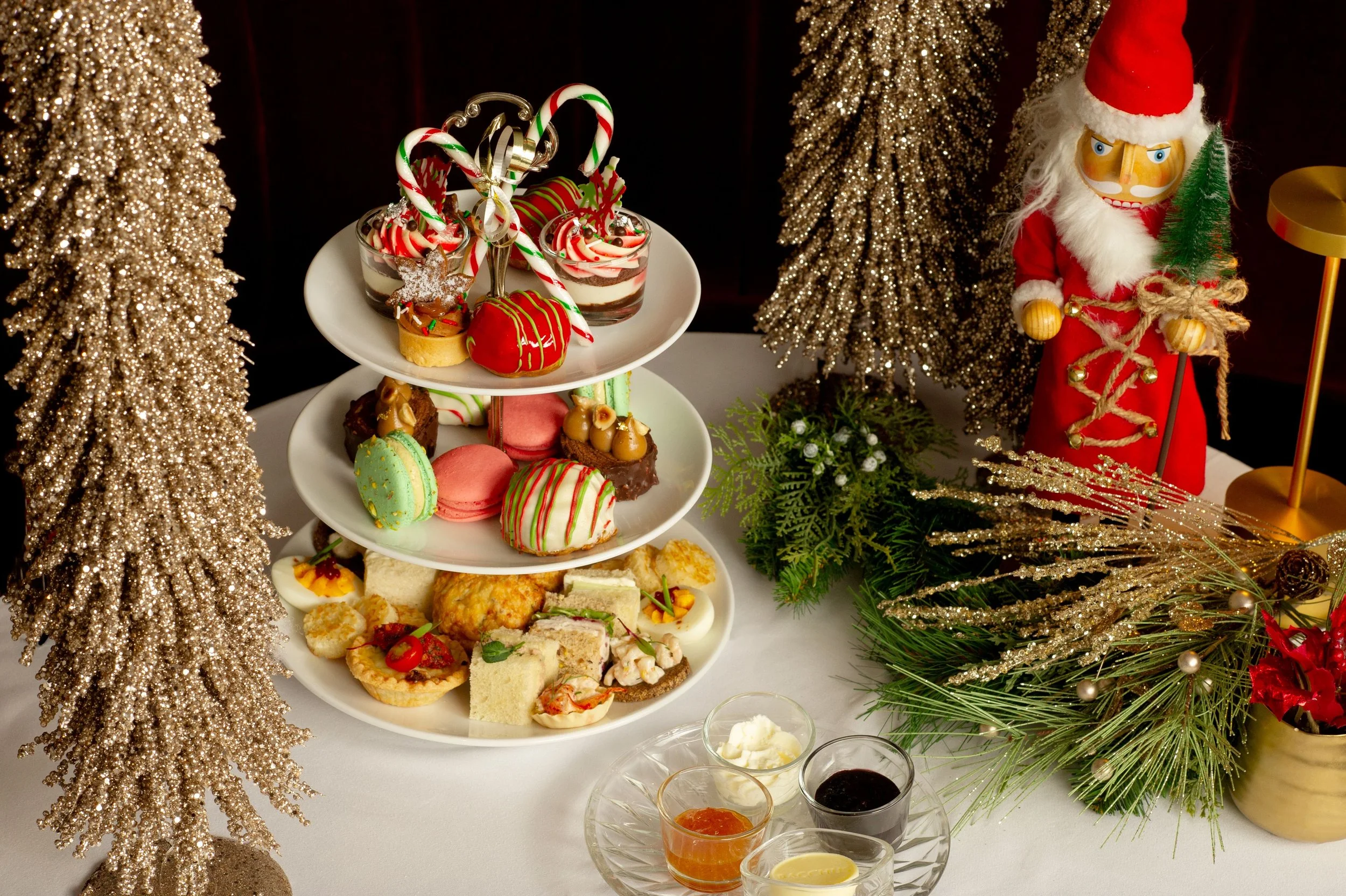Le Tigre food truck rolls again, hawking Taiwanese and Korean street food
For chef Steve Kuan, the menu’s bao buns are a taste of home
Vancouver chef Steve Kuan first discovered bao buns at the Shilin Night Market in his native Taiwan and now makes different versions at Le Tigre food truck and Torafuku restaurant. Photo by Bethany Ho
NOT FAR FROM where Steve Kuan grew up in Taipei is the Shilin Night Market. One of the busiest night markets in Taiwan, it sells everything from hair accessories and sneakers to kitchen gadgets and furniture. But what it’s best known for is the food, dishes like stinky tofu, oyster omelets, hot pot, bubble tea, little pancakes folded into big pancakes, small sausages inside big sausages, pork paper, and deep-fried fish balls. What Kuan remembers most are bao buns.
A hugely popular street food, the pillowy soft steamed buns are made simply of flour, water, and yeast. They’re traditionally stuffed with seasoned pork but can envelop everything from beef and crab to custard and coconut.
Kuan moved to Vancouver with his family when he was 12 and would visit Taiwan regularly in his teens. Craving the scents and sizzle of the market’s hawker stands, he sought out bao any chance he got.
“I could vividly remember the steam that came out from the bamboo steamers when they lifted up the lid, and holding the warm, fluffy, white bun in my palms,” Kuan tells Stir. “The super tender pork belly with candied peanut powders and the fragrant cilantro are just a perfect blend of texture and flavour.
“I learned how to make a similar bao from my mom when she did all the cooking for the family,” he says. “When I was little, I would be the small assistant kitchen-helper for my mom.”
Kuan now uses that same recipe to make bao buns from scratch for Le Tigre, a food truck that’s the sibling mobile eatery of Torafuku. Kuan runs them with chef Jace Yun, the truck having just returned to Vancouver streets after a 17-month pause in its eight-year history.)
Like other items on Le Tigre’s menu, the buns reflect of blend of the chefs’ cultural backgrounds; Yuce hails from Daegu in South Korea.
On the menu is a beef brisket fried bao with gochujang-cabbage slaw, pickled radish, horseradish, and shaved candied peanuts. (Gochujang is a funky Korean sweet-and-savoury paste made of red chili peppers and fermented soybeans.) Another variation has crispy chicken, cabbage slaw with truffle-basil dressing, tartar sauce, shaved candied peanuts, and pickled radish and carrot.
The hand-held street eats are the pair’s reinterpretation of a food that’s said to date back to the Three Kingdoms period (220 to 280). Legend has it that, to cure soldiers who had fallen ill on a mission to South China, military strategist Zhuge Liang made a foodstuff out of flour, pork, and beef resembling a human head; it was a symbolic offering to the gods that he then fed it to his army. Originally called “mantou” (meaning “flour head”), the dish takes its name from the word baozi, which means either “to wrap” or “bun”—the latter making the widely used term “bao bun” indeed redundant. Of the several types of bao is the soup-filled xiaolongbao; the fluffy burger-like buns can be sweet or savoury.
With chefs Jace Yun (left) and Steve Kuan in the galley, Le Tigre food truck is back after a hiatus. Photo by Leila Kwok
Like bao, other items on Le Tigre’s menu represent a mix of both chefs’ cultural backgrounds, while drawing on techniques and tastes from across Asia. Rice cooked with sake butter, ginger, garlic, and dashi forms the base of the truck’s signature Kickass Rice Bowls, which come with a poached egg, pickled cabbage slaw, fresh herbs, and a choice of Brussels sprouts, crispy chicken or braised beef.
Shabu-shabu is a Japanese style of cooking beef or pork quickly in boiling water then dipping it in sauce; Le Tigre makes a salad of thinly sliced shabu-shabu pork belly topped with fresh herbs and chunks of crispy kickass rice.
Pork-and-whole-shrimp dumplings star in Ugly Dumpling, a mixed-herb salad with pickled radish, seaweed flakes, and chili-soy dressing. Soy Egg is a cold konjac-noodle dish with a soy-marinated ramen egg in chili sauce. Also called shirataki or miracle noodles, the long, white konjac noodles are made from glucomannan, a kind of fibre from the root of the konjac plant that grows in Japan, China, and Southeast Asia. (Shirataki means “white waterfall” in Japanese, owing to the noodles’ translucence; westerners might consider them magical because they contain few digestible carbs, making them filling but low in calories.)
Le Tigre food truck into four locations on a rotating schedule from 11:30 am to 2:30 pm at each: Broadway and Ash on Tuesdays; Railway and Jackson on Wednesdays; Granville and West 10th on Thursdays, and 33 Acres Brewing Company (15 West 8th) on Fridays. Plans for a Saturday rollout are in the works.
Le Tigre food truck into four locations on a rotating schedule from 11:30 am to 2:30 pm at each: Broadway and Ash on Tuesdays; Railway and Jackson on Wednesdays; Granville and West 10th on Thursdays, and 33 Acres Brewing Company (15 West 8th) on Fridays. Plans for a Saturday rollout are in the works.















